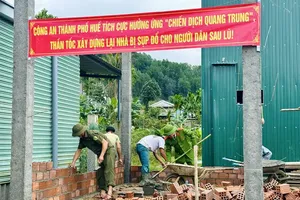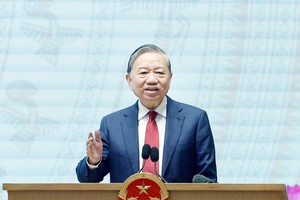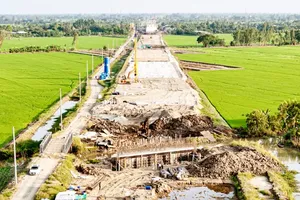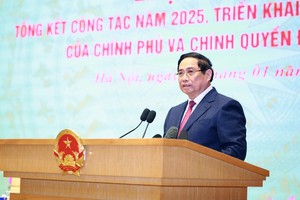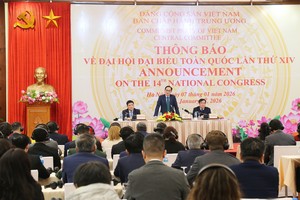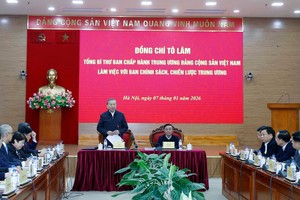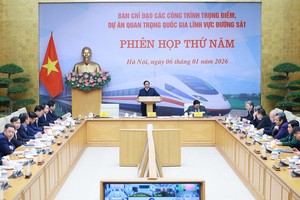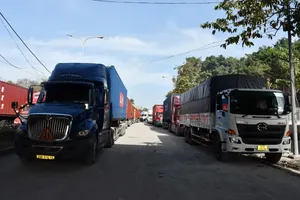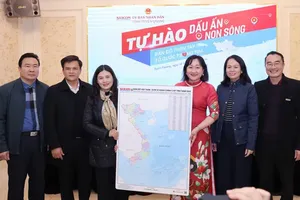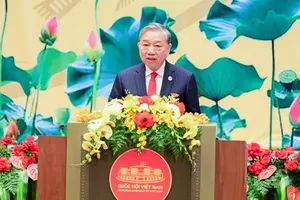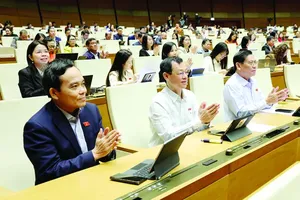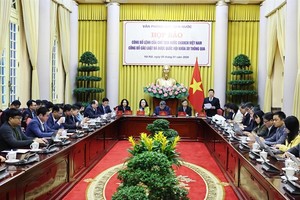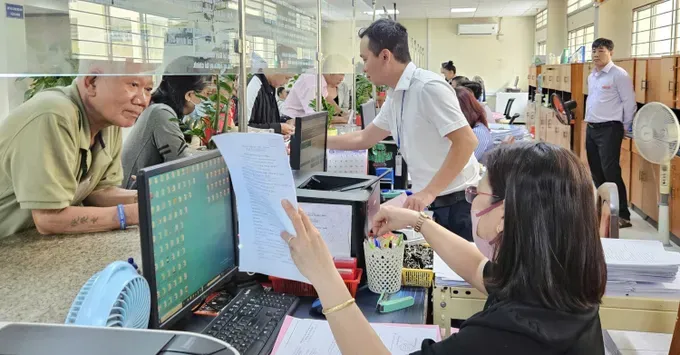
More than a month into the new system, the Public Administration Service Center in HCMC’s Go Vap Ward is constantly bustling. The civil servants at its 15 counters work feverishly, guiding residents, receiving files, and processing paperwork. Because the center also houses a branch of the land registration office, it handles between 600 and 800 files of all types every single day. The sheer volume is putting the staff under immense pressure.
“With this workload, our staff have almost no time for lunch and often work until 8:00 p.m.”, explained the Center’s Deputy Director Nguyen Chi Thanh. He said that during the day, staff are completely focused on face-to-face service, sometimes taking turns to eat a quick lunch. In the evening, they stay late to digitize and process the day’s mountain of paperwork.
It’s a similar story at the Public Administration Service Center in Hoa Hung Ward, processing nearly 2,700 administrative files in July alone, over 60 percent of which were for certified copies. But on top of the high volume, this ward faces logistical and bureaucratic hurdles.
The Service Center and the main People’s Committee headquarters are in two different locations, making the operating process difficult, especially for files that need the Chairman or Vice Chairman of the People’s Committee to sign for certification.
“The standing members of the People’s Committee still have to run back and forth to sign, while the Public Administration Service Center has its own seal, its own account, and a Deputy Director in charge, but has not yet been given the authority to sign certifications”, shared the leadership of Hoa Hung Ward People’s Committee.

The pressure is widespread. In Binh Tan Ward, the chairman noted that while services are running smoothly, the consolidation of what used to be 12 district-level departments into just three ward-level offices, each with only one deputy head, has left staff struggling to keep up. It’s not just a problem of being short-staffed, but also a lack of delegated authority to allow for more flexibility at the grassroots level.
According to the HCMC Department of Home Affairs, the workload at the commune level has exploded in both breadth and depth, ranging from economy, culture, urban management, natural resources, environment, to social welfare.
The current reality, however, is that each civil servant is responsible for an average of four to nine distinct and highly detailed tasks, leading to overload, compromising quality, and limiting their ability to provide effective management and counsel.
In response, the Department has officially proposed that the city’s leadership amend the National Assembly’s Resolution 98 (on special mechanisms for HCMC’s development) to better fit the new two-tier model. The proposals include increasing the number of Vice-Chairmen at the ward/commune level and assigning staffing quotas that reflect the city’s actual needs.
This is a national issue. At a recent Ministry of Home Affairs conference to summarize task results for the first six months, leaders from Hanoi proposed that large, complex wards be allowed to establish additional specialized departments – for instance, a separate Finance and Planning Department – to reduce the burden on a single manager.
In a recent report sent to the Ministry of Home Affairs, the Lai Chau Province Department of Home Affairs has proposed that ministries and agencies promptly review and advise the Government to amend inadequate, non-specific, and inconsistent contents in the decrees on decentralization, devolution, and delineation of authority in the fields of state management under their management authority.
It is proposed that the Government's steering committee for arranging administrative units at all levels and building the two-tier local government model consider regulating an increase in the staffing framework for the commune level to ensure they have the manpower to fulfill their expanded duties.
